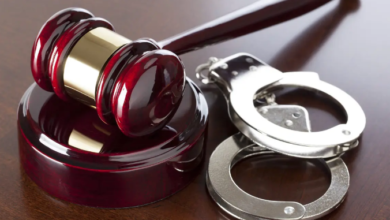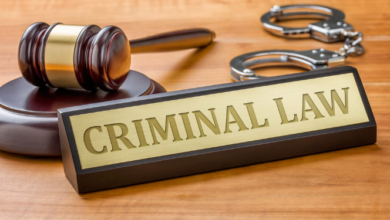Navigating the Legal Process: A Guide to Criminal Procedure for Defendants

Dealing with fraudulent charges can be scary and leave you feeling harassed and worried about the future. It is important to understand how complex criminal cases can be in order to build properly.
This guide is intended to take the mystery out of fashion and provide defendants with clear, concise facts about what to expect. From the initial charge to the final verdict, every step has major consequences.
Criminal proceedings are less difficult to handle if you know what you are doing and are well organized. It’s about giving defendants the equipment they want to take care of in their defense.
Understanding your rights
Every individual accused of something has fundamental rights. The two big ones are: you can stay quiet if necessary, and you can have a lawyer.
These rights allow you not to screw up your script by accident. It is very important that you use these rights neatly, for example by using a great fraud protection lawyer.
Advocate role
Going through criminal matters on your own is risky. A criminal defense lawyer is like your backup, helping you and standing with you in the courtroom. They test your case, plan your defense and ensure you are heard and your rights are protected.
First steps after arrest
If you are ever arrested, keep calm, stay quiet and get a lawyer. What you say can be used against you, so it’s essential to have a lawyer with you before you talk to the police.
Bail and preliminary hearings
Bail is a type of agreement that helps you stay out of jail pending a trial. Your lawyer can communicate about bail and try to make it cost less. They may also ask for matters that could help your trial, such as the charges being dropped or some evidence no longer being used.
Understanding Fees and Claims
Know the exact costs against you and their ability implications. Your attorney will explain the criminal charges and discuss possible plea alternatives, along with a plea of responsible, no responsible, or no contest. The plea you choose will have a significant impact on the path of your prison direction.
Discovery process
Discovery is the pre-trial portion in which the prosecution and defense alternate statistics relevant to the case. This system can uncover evidence that can be beneficial to your defense or realize weaknesses in the prosecution’s case.
Exam preparation
Trial preparation includes interviewing witnesses, evaluating evidence, and creating access plans. Your defense team will work tirelessly to build a compelling case in your favor to offer the most powerful viable defense and prosecution case.
Trial process
The impostor trial unfolds through amazing levels: jury selection, opening statements, witness testimony, trial, final arguments, and jury deliberations. Understanding each part can demystify the technique and prepare you for what to expect.
Appeals and rights after conviction
Belief is not always a stop sign. Defendants can appeal for legal malpractice, seeking to overturn the decision or reduce their sentence. This complex process requires navigating the appeals courts and will likely involve new trials or a revised judgment.
Successful navigation in criminal proceedings
People who go to court over fraudulent expenses need to be strong, smart and proactive. Reduce your stress and anxiety by learning how complicated fraud litigation is.
You need a professional criminal defense attorney to navigate this difficult process. Through the tool of criminal justice, from arrest to appeal, strategic planning and well-informed decisions are essential.
To protect and serve justice, criminal litigation is done. Following these rules can help people who are accused of crimes get through their cases.
Did you want this manual? Great! Please see our website for more!




